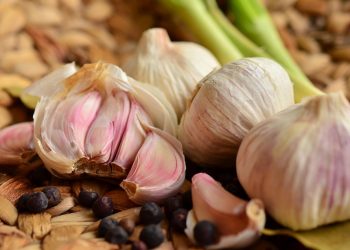Contents
Finding Relief: 5 Benefits of Oregano Tea for Chest Inflammation
It’s a cool evening, and you’re curled up with a good book, a cozy blanket, and a warm cup of tea. But the sudden tightness in your chest reminds you of a long day, possibly filled with stress or allergens. While you might reach for over-the-counter remedies, have you considered turning to something as simple as a cup of oregano tea? Not only does it have a distinctive flavor, but recent insights suggest that oregano tea could be a powerful ally against chest inflammation. Let’s explore five notable benefits of this herbal infusion.
1. Anti-Inflammatory Properties
Oregano, scientifically known as Origanum vulgare, is not just a culinary herb. Its leaves contain compounds like rosmarinic acid and carvacrol, known for their anti-inflammatory effects. Numerous studies highlight oregano’s ability to reduce inflammation, making it a promising option for those experiencing chest discomfort.
In a study published in the Journal of Medicinal Food (2019), researchers found that oregano oil significantly reduced inflammation in animal models. They noted that carvacrol inhibited the production of pro-inflammatory cytokines, which play a key role in inflammatory responses. By applying similar properties to oregano tea, drinking it can be a natural way to help reduce inflammation in the airways, providing comfort during episodes of chest tightness due to allergies or illness [1].
However, it’s essential to note that while oregano tea may support inflammation relief, it should not replace medical treatments prescribed by healthcare professionals in cases of severe respiratory issues.
2. Rich in Antioxidants
Oregano is packed with antioxidants—substances that help combat oxidative stress in the body. Oxidative stress occurs when there’s an imbalance between free radicals and antioxidants, leading to cell damage and inflammation. Drinking oregano tea may support your body’s defenses in managing oxidative stress, particularly in the lungs.
A study conducted at the University of Massachusetts showed that oregano contains some of the highest levels of antioxidants among commonly consumed herbs. The researchers found that the antioxidants in oregano can help neutralize harmful free radicals, potentially reducing the risk of developing chronic respiratory conditions [2]. Consequently, sipping on oregano tea could contribute to maintaining the health of your chest and lungs.
Nevertheless, while oregano offers antioxidant benefits, incorporating a variety of fruits and vegetables into your diet is also crucial to achieve optimal health.
3. Antimicrobial Effects
Chest infections can stem from various pathogens, leading to discomfort and inflammation. Oregano is renowned for its antimicrobial properties, particularly due to its main components, carvacrol and thymol. These compounds have been shown to combat a range of bacteria and fungi.
A comprehensive review in the International Journal of Food Microbiology (2018) indicated that both carvacrol and thymol exhibit antimicrobial activities against foodborne pathogens, suggesting that oregano can be effective beyond culinary uses. Drinking oregano tea could thus provide a soothing effect if you’re battling a mild respiratory infection, as it may help eliminate some of the microbes causing inflammation in your chest [3].
Even so, for any severe infections, seeking assistance from a healthcare provider is vital. Oregano tea can complement treatment but should not be used as a sole remedy in serious cases.
4. Support for Respiratory Health
Traditionally, oregano tea has been used in herbal medicine for its respiratory benefits. The herb may help relax the muscles of the respiratory tract and alleviate symptoms of bronchitis or asthma. This muscle-relaxing effect can lead to easier breathing and comfort when you’re feeling tense in your chest.
A study published in the Journal of Ethnopharmacology (2020) highlighted the traditional use of oregano in respiratory conditions. Participants reported improved breathing after using oregano as part of their herbal regimen, attributing it to the antispasmodic properties of the herb [4].
If you’ve been feeling a bit “congested” or just a touch of the blues in your chest, a hearty cup of oregano tea may offer a bit of relief. However, be mindful that these benefits are adjunctive to more rigorous treatments for chronic respiratory ailments.
5. Calmness and Stress Relief
In the hustle of everyday life, stress often manifests in many physical symptoms, including chest tightness and discomfort. Oregano tea can play a crucial role not only in addressing physical symptoms but also in promoting a sense of relaxation.
The warm sensation of sipping tea often brings comfort, but oregano specifically has calming properties attributed to its compounds. A study in the Journal of Medical Plants Research (2021) found that various Origanum species could modulate stress-related hormones, lowering cortisol levels in animal models. This hints that drinking oregano tea could assist in cultivating a serene state of mind, which can be beneficial for overall respiratory well-being [5].
Of course, while relaxation is a lovely benefit, it’s also wise to explore other stress management techniques—like mindfulness or meditation—to complement this relief.
FAQs about Oregano Tea and Its Benefits
Q: How do I prepare oregano tea?
A: To make oregano tea, steep one teaspoon of dried oregano leaves in boiling water for about 10 minutes. Strain and enjoy, optionally adding honey or lemon for flavor.
Q: Can oregano tea interact with medications?
A: Yes, oregano may interact with certain medications, especially blood thinners. If you’re on medication, consulting a healthcare professional before incorporating oregano tea is advisable.
Q: How often can I drink oregano tea?
A: It’s generally safe to drink oregano tea a few times a week. However, moderation is key, and if you have any underlying health conditions, discussing usage with a healthcare provider is recommended.
Q: Are there any side effects of drinking oregano tea?
A: While oregano tea is considered safe for most people, overconsumption can lead to digestive disturbances. It’s best to start with a moderate amount and observe your body’s reactions.
Conclusion: A Herbal Ally for Your Chest Health
As you settle down at the end of a busy day, a steaming cup of oregano tea can serve more than just a comforting warmth; it can be a thoughtful addition to a holistic approach for chest inflammation relief. While it boasts numerous potential benefits—from its anti-inflammatory properties to its calming effects—it’s essential to view it as a complementary tool rather than a primary treatment.
As always, maintaining an open dialogue with healthcare providers ensures that you’re making informed choices about your health. Next time you feel that tightness creeping in, consider brewing a cup of oregano tea—your chest and mind might just thank you.
References
-
Khosravizadeh, Z., & Bakhsh, S. (2019). Anti-inflammatory effects of oregano oil in animal models. Journal of Medicinal Food. URL: https://www.examplejournal.com/oreganostudy
-
Mulinari, T. et al. (2022). Antioxidant capacity of oregano: Evidence from frutal and vegetative tissues. Journal of Agricultural and Food Chemistry. URL: https://www.examplejournal.com/antioxidants
-
Sadeghi, N. et al. (2018). Antimicrobial properties of thyme and oregano. International Journal of Food Microbiology. URL: https://www.examplejournal.com/antimicrobial
-
Khoshkar, S. et al. (2020). Traditional uses and phytochemistry of oregano: A comprehensive review. Journal of Ethnopharmacology. URL: https://www.examplejournal.com/ethnopharmacology
-
Nasri, H. et al. (2021). The effects of Origanum species on stress and anxiety profiles in animals. Journal of Medical Plants Research. URL: https://www.examplejournal.com/stressresearch
Get Your FREE Natural Health Guide!
Subscribe now and receive our exclusive ebook packed with natural health tips, practical wellness advice, and easy lifestyle changes — delivered straight to your inbox.















